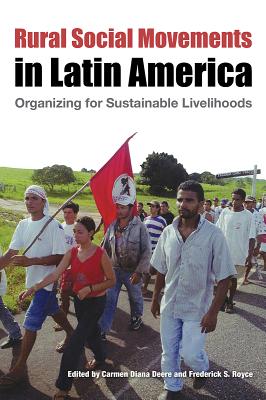Expedite your nonfiction book discovery process with Readara interviews, summaries and recommendations, Broaden your knowledge and gain insights from leading experts and scholars
In-depth, hour-long interviews with notable nonfiction authors, Gain new perspectives and ideas from the writer’s expertise and research, Valuable resource for readers and researchers
Optimize your book discovery process, Four-to eight-page summaries prepared by subject matter experts, Quickly review the book’s central messages and range of content
Books are handpicked covering a wide range of important categories and topics, Selected authors are subject experts, field professionals, or distinguished academics
Our editorial team includes books offering insights, unique views and researched-narratives in categories, Trade shows and book fairs, Book signings and in person author talks,Webinars and online events
Connect with editors and designers,Discover PR & marketing services providers, Source printers and related service providers

Rural Social Movements in Latin America: Organizing for Sustainable Livelihoods
Political Science > General
- University Press of Florida
- Paperback
- 9780813064826
- 9.21 X 6.14 X 0.84 inches
- 1.28 pounds
- Political Science > General
- (Single Author) Asian American
- English
Readara.com
Book Description
All across Latin America, rural peoples are organizing in support of broadly distinct but interrelated issues. Food sovereignty, agrarian reform, indigenous and women's rights, sustainable development, fair trade, and immigration issues are the focus of a large number of social movements found in countries such as Bolivia, Colombia, Mexico, Nicaragua, Brazil, and Peru.
The contributors to Rural Social Movements in Latin America include academic researchers as well as social movement leaders who are seeking to effect change in their countries and communities. As a group they are at the forefront of some of the most critical environmental, social, and political issues of the day.
This volume highlights the central role these movements play in opposition to the neoliberal model of development and offers fresh insights on emerging alternatives at the local, national, and hemispheric level. It also illustrates and analyzes the similarities--notably the struggle for sustainable livelihoods--as well as the difference among these various peasant, indigenous, and rural women's movements.
A co-publication with the University of Florida Center for Latin American StudiesAuthor Bio
Dr. Carmen Diana Deere is Distinguished Professor Emerita of Latin American Studies and Food & Resource Economics. Since 2015, she is Honorary Professor Emerita of the Latin American Faculty of Social Science (FLACSO-Ecuador) in Quito where she is teaching periodically.
Deere holds a Ph.D. in Agricultural Economics from the University of California, Berkeley, and a M.A. in Development Studies from The Fletcher School of Law and Diplomacy. She was Director of the UF Center for Latin American Studies from 2004 to 2009. Before coming to UF, she was Professor of Economics at the University of Massachusetts, Amherst, where she was Director of the Center for Latin American, Caribbean and Latino Studies.
She is a Past President of the Latin American Studies Association (LASA) and of the New England Council of Latin American Studies (NECLAS). She is an Associate Editor of the journal Feminist Economics, and serves or has served on numerous editorial boards, including the Journal of Agrarian Change, Latin American Perspectives, World Development, Development and Change, and the Latin American Research Review, among other journals.
The author of numerous books and journal articles, her co-authored book with Magdalena León, Empowering Women: Land and Property Rights in Latin America (University of Pittsburgh Press, 2001) was awarded LASA’s Bryce Wood Book Award as well as two other book prizes. She and León were also awarded the James A. Robertson Prize by the Conference on Latin American History for “Liberalism and Married Women’s Property Rights,” considered the best article published in the Hispanic American Historical Review in 2005. Deere has co-edited two special issues of Feminist Economics, on Women and the Distribution of Wealth (2006) and Gender and International Migration (2012). She also co-edited Rural Social Movements in Latin America: Organizing for Sustainable Livelihoods (University Press of Florida, 2009).
From 2009 to 2015, Deere was co-PI of the Gender Asset Gap project, a comparative study of Ecuador, Ghana and India. She coordinated the Ecuador study, and in collaboration with FLACSO-Ecuador, carried out a nationally-representative household asset survey there in 2010. This research endeavor was funded by grants from the Dutch Foreign Ministry’s MDG3 Fund, the Vanguard Foundation, the UN Foundation, and UN Women. (For publications from this project see: https://sites.google.com/view/genderassetgap)
Deere is currently participating in the International Panel on Social Progress (IPSP), convened by Amartya Sen, and will serve as a lead author for the chapter on “The Pluralization of Families and Intimate Relations.” Besides continuing to carry out research in Ecuador, she will also be carrying out research in Cuba as part of the UF-University of Havana collaborative project on The Agricultural Sector and the International Economy: Challenges and Opportunities for Cuba and the United States.
Source: University of Florida
Videos
No Videos
Community reviews
No Community reviews

